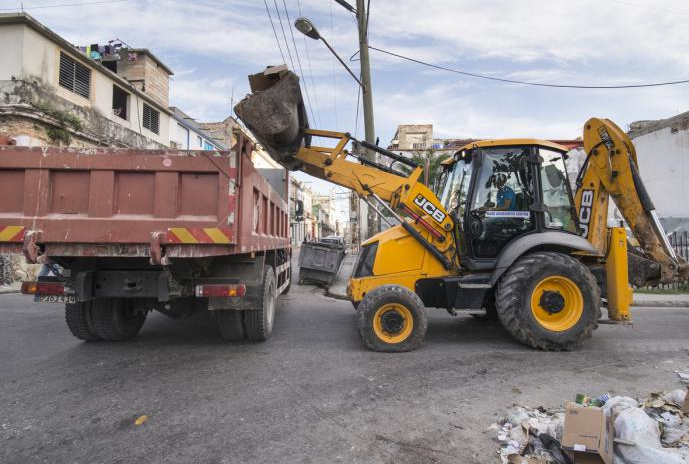
In Havana, steps are being taken with comprehensive approaches to restore the splendor of this ancient city, more than 500 years old, after a long period of accumulation of rubbish in many corners.
By Roberto Morejón
One of the most pressing problems for Cubans, especially the inhabitants of Havana, has been the accumulation of solid waste in the cities, which has caused concern among the authorities and the population, although there are signs of light at the end of the tunnel.
In Havana, steps are being taken with comprehensive approaches to restore the splendor of this ancient city, more than 500 years old, after a long period of accumulation of rubbish in many corners.
Some say it is an offensive, others say it is an initiative to get out of the swamp while sustainable solutions are studied over time.
These are studies of efficient procedures with a greater impact on the orderly development of Havana, an experience that can be applied in other cities.
Water experts and officials are analyzing foreign investment proposals to deal with the residuals of Havana's Integrated Waste Management System.
Meanwhile, the authorities are resorting to new solutions, such as those applied in the capital's 10 de Octubre district, where they are promoting hygiene after an unfavorable situation caused by the dumping of rubbish in the streets.
With the attention of the national Communist Party offices and the ministries, they are beginning to put an end to the nuisance in the demarcation, one of the most populated and oldest in the Caribbean archipelago.
Along with government trucks, mobilized staff and gardeners, people are knocking on the doors of public institutions to make them take responsibility for maintaining their façades.
Municipal leaders claim that they are far from reversing the critical situation, but they point to successes such as the removal of rubble from some parks and the reduction in the number of corners littered with debris. The directors of the capital's 10th of October Municipal Council are calling for greater participation and discipline on the part of residents.
Cuban cities suffer from a low technical availability of garbage collection equipment, which, together with the lack of garbage collection personnel and social indiscipline, this has led to the tense scenario we described.
Although the current program is temporary, Havana intends to maintain it until more efficient practices, which are currently being studied, are ready.

